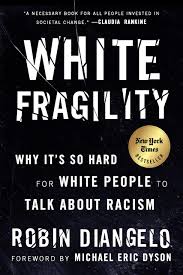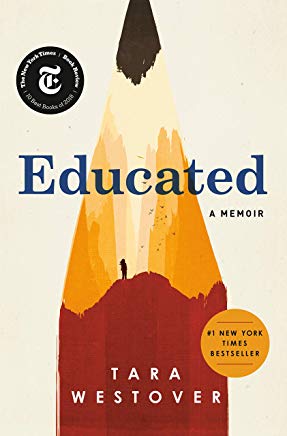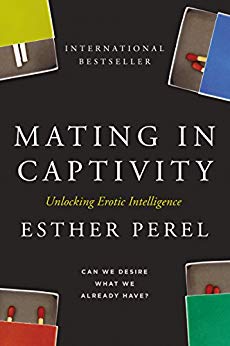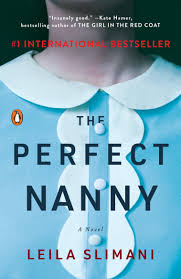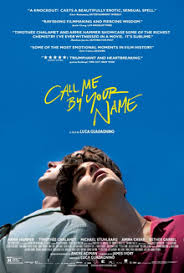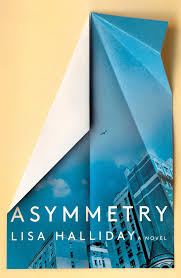My Year of Rest, (Reading) and Relaxation* - Book Review pt. I
* Riff on the novel My Year of Rest and Relaxation by Ottessa Moshfegh
Context for Book Selection
I consume critically acclaimed art. Strategically start with a curated pool, and whittle down from there… With a limited amount of time for pop culture, why waste time sifting through unproven material? I realize there are LOTS of reasons to sift through unproven material -but that’s not my approach. To that end, everything I’ve read has already been vetted by a combination of “somebodies”. Example: I triangulated a NYT year-end review, a Pop Culture Happy Hour podcast, and friend recommendations to select “Normal People” by Sally Rooney -My favorite read of the season!
I support diverse authors. Inspired by my friend Sasha Magee’s commitment to consume diverse writers, and a general passion for diversity and inclusion in narrative storytelling, I’ve focused much of my reading on female and POC authors. So far in 2019, I’ve consumed 82% female authors -with 18% women of color as a component of that 82%- and 18% white male authors. I’ll look to increase reading representation of men-and-women of color in the back-half of the year.
I want complexity in novels. Straightforward beach reads are great and they certainly have their place. But my favorite stories are innovative -or at least “new-to-me”- across multiple dimensions: plot, character development, prose, world building, narration approach, and/or story timeline management. Most of the books I’ve rated the highest have some “wow” factor across these elements.
Last point: I almost entirely read contemporary fiction, usually centered around human relationships OR read what I’ve characterized as “Mindfulness, Diversity and Inclusion, and Self-Help”. I’ll look to expand on these two types of books in the back-half of the year… Likely branching out to sci-fi/fantasy, and some business books. We’ll see :)
The objective of the reviews below are simply to add another layer of critique and context to books already praised by many. I hope you find my perspective helpful in deciding if these reads are “worth it” to you :)
Much love and happy reading, -Beckie
Recommendation Legend:
Ah-Mazing - If I could erase the memory of reading it and start again, I would. I’d even pay another $20+ for the pleasure of re-experiencing the book.
Super Pleasurable - Totally worth the read. Get at it!
Meh - Take it or leave it. If the subject matter interests you, take it.
Don’t Bother - Nuff said.
Books below are ranked in descending order within their “TL;DR category” from most to least recommended.
Fiction & Memoirs
Normal People: A Novel by Sally Rooney | TL;DR: Ah-Mazing. You had me at songs by Vampire Weekend, and commentary on liberal arts college students’ approach to literature classes. “He did start to wonder why all their classroom discussions were so abstract and lacking in textual detail, and eventually he realized that most people were not actually doing the reading”. Hilarious and completely on-point. Peer into the lives of Connell and Marianne -watch as they stumble, dance, stumble and dance again through their teens and early 20s. A cis-hetero, multi-year relationship unfolds with all the complexities and intricacies that arise from a love of even the most “normal people”. So much of this story felt so relevant -as I’m removed enough from undergrad to have broader context, but close enough to still viscerally remember those years (or maybe we will all always remember those years?). Some of the best and, yet, most cringeworthy times. Normal People is a love story wrapped in a sex, obsession, companionship, shame, connection, power / submission and jealousy story. It perfectly evokes the longing to be just a little bit closer to a lover…. But reminds us that words, acts, glances, and most of all insecurities, failed us all back then.
Call Me by Your Name: A Novel* by André Aciman | TL;DR: Ah-Mazing. Lush and evocative storytelling. Seductively sweet and intimately raw. A tortured queer love story of Elio and Oliver that primarily unravels over a 6-week Italian summer in the early 1980s. Wrap yourself in swim trunks of blue, green and red. Soak up the sun, laze by the river, and ride bikes through the countryside. Intimately experience the frenetic and obsessive internal monolog of 17-year-old Elio worshiping 24-year-old Oliver. As all teenagers do in their first real love.
* I’m biased. I LOOOVVEEDDD this movie. I’m supportive of watching the movie before reading the book, because Timothee Chalamet and Armie Hammer -but it seems like it could work well reading the book first, too.
The Great Believers by Rebecca Makkai | TL;DR: Ah-Mazing. Beautiful F. Scott Fitzgerald-esque inspired prose. Parallel stories: One of a small group of young gay male friends in Chicago surviving, and dying in the early-to-mid 80s from the aids crisis. Another story of Fiona, a mother looking for her estranged daughter in Paris in 2015. The stories collide, as expected, but the real joy and sorrow of the novel lies in the lives of the Yale, Charlie, Nico, Richard and the other boys who so quickly had to become men during the beginning of the aids crisis. You’ll connect with them as individual characters, as a group of friends who double as family, and as a microcosm in the broad and horrific epidemic. Experience how shame, guilt, anger, blame, and ultimately hope and love tear through their community.
The Perfect Nanny: A Novel by Leila Slimani | TL;DR: Ah-Mazing. The first sentences of the novel read: “The baby is dead. It took only a few seconds. The doctor said he didn’t suffer.” Woah! Buckle up for an incredibly intense thriller. A thriller only insofar that the novel unpacks the “why” of the children’s deaths. As a reader, you know “the what” from the very first sentences. The concept of “perfect” is a thru-line in this novel. Myriam, the mother, aspires to be perfect in her reignited law career. Paul, the father, expects his wife and family to be perfect, and of course, the nanny, Louise, is perfect. She cooks meals, cleans the house, and the children love her. But she’s tortured in her own way. This is a novel about class/status, about perception, and about how perfection can drive us all mad. It’s a gut punch to everyone living a modern, and aspiratonally “perfect”, life.
Educated: A Memoir by Tara Westover | TL;DR: Ah-Mazing. When reading, the story feels completely unreal…But the contents of the story are real. That’s what makes Educated: A Memoir such a page-turning and, frankly, mind-blowing read. Most of you have probably already read it. If not, go do so. Tara Westover, now in her early 30s, writes of her surreal childhood in a Mormon town in Idaho and her eventual escape into the broader world. Here parents are survivalists -meaning they are skeptical of western medicine and educators-, and her father struggles with mental health. All of these factors combine to create Tara’s childhood world. One where she doesn’t even see doctors for major traumatic injuries. Where she isn’t allowed to take any medications/pharmaceuticals -so much so, that she forgoes the use of Advil as a young adult. Her homeschooling is minimal and patchy at best -eg. she doesn’t learn of the Holocaust until an embarrassing moment in college. Tara’s brother is deeply abusive to her. She loves her family, but to grow, she must escape and leave much of what she’s known behind. We love coming-of-age stories that showcase individuals triumphing over hardships. This is one of the most remarkable tales I’ve ever read in this genre.
Conversations with Friends by Sally Rooney | TL;DR: Super Pleasurable. If I’d read this before Normal People, also by Sally Rooney, I would have put this in the “Ah-Mazing” category. But I didn’t. Frances, the protagonist, and Bobbie, both women, are ex-lovers, best friends, mostly inseparable, aspiring writers and attempting socialites. They are also students in their early 20s. The novel opens with Frances and Bobbi meeting Melissa and Nick, a married, but sexually estranged, affluent and artsy couple in their mid-30s. Bobbi crushes on Melissa; Frances has an affair with Nick, and with all these relationships Rooney explores complex sexual identity, age and power dynamics, partnership, polyamory (though that language is never used), guilt, shame and isolation. Much like Normal People, this story is raw and real. It balances telling a small, intimate story at a point in time, while addressing so many broader questions around human nature and relationships. Stylistically similar -her prose are the reason to read her work-, and thematically similar -ultimately both novels are about the complexities of human relationships-, Conversations with Friends, Rooney’s first novel, is still a joy to devour.
Asymmetry: A Novel by Lisa Halliday | TL;DR: Super Pleasurable. Worth a read, but perhaps not as amazing as I had expected given the outpour of critical reviews. Complex novel structure and interwoven story lines grappling with key questions around identity across racial, socioeconomic and gender lines. In “Folly”, part 1 of the novel, Alice, a book editor in her mid-20s falls into a relationship with Ezra, an affluent and needy man in his mid-60s. Ezra was modeled after the writer Philip Roth -whom Halliday briefly dated back when she was working at the Wylie agency. The age, income, and experiential differences in their lives are palpable. Part II of the novel, “Madness” features Amar, an American citizen of Iraqi-Kurdish descent, who is being held and questioned at Heathrow Airport in London on his way to Iraq. The novel juxtaposes certain world events and common experiences in the two stories and there’s an interesting and rewarding twist at the end. Because so much of our experience is dependent on our ethnicity, gender, and class at birth -our lives will always be asymmetrical.
An American Marriage: A Novel by Tayari Jones | TL;DR: Super Pleasurable. Heartbreaking, personal, complex story of newlyweds Celestial and Roy starting a life in Atlanta while oppressed by institutional racism. The story also features Andre, Celestial’s childhood, and current, best friend. First-person narration rotates between all 3 main characters, which allows the reader to empathize with each of their experiences in the relationship triangle. Early in the book, we learn that an innocent evening in a Hotel 6 turns quickly devastating when Roy is wrongly accused of raping a white women down the hall in the hotel. What should happen to a marriage of only 1.5yrs when a wrongly convicted husband is locked away for 10? Can love and commitment survive that trauma? Find out!
The Tattooist of Auschwitz by Lisa Halliday | TL;DR: Super Pleasurable. Based on a true story -here’s a NYT article that describes more- documenting the love and determination of Lale Sokolov, a Slovakian Jewish man, and Gita Furman, a Jewish woman in 1942+ Auschwitz. Lale is a lovable and deeply empathic narrator. This is a straightforward page-tuner of the horrific experience that Lale and Gita endured in the concentration camp, and their eventual escape to freedom -albeit with irreparable and long-lasting trauma. Because it’s based on a true story, there’s added credibility and backing to the reading experience.
Where the Crawdads Sing by Delia Owens | TL;DR: Super Pleasurable to Meh. Everyone loves this book! It’s a really quick and enjoyable read. It’s engaging -the 1952 coming-of-age story of Kya, an abandoned, extremely poor and uneducated girl. Kya lives in a dilapidated shack alone and and spends much of her time on her beat-up boat exploring the river of “the marsh”. Kya is bullied by other kids during her one-and-only day at school, and struggles to make ends meet at home. However, Kya is a miraculous human, and is fortunate enough to meet Tate Walker, her first love, who teaches her to read and write. Eventually Kya finds happiness & success. In parallel, in 1965, we find out that Chase Andrews has been murdered. The two stories eventually connect. The ending feels rushed and the story somewhat contrived. And while the character building of Kya in the marsh is compelling, it wasn’t enough for me to put this book higher up on this list. If you’re looking for a great beach read, with some struggle, some feel-good moments, and you can easily suspend disbelief, this is a great pick. If not, pick something else.
Mindfulness, Diversity and Inclusion, & Self-Help
White Fragility: Why It’s so Hard for White People to Talk About Racism by Robin J. DiAngelo | TL;DR: Ah-mazing. A must-read for white people who care about breaking down everything from day-to-day racist microaggressions to the systemic and deeply rooted racism in America. This is an extremely challenging, but incredibly nuanced, valuable and practical read. “Racism is a systemic, societal, institutional and omnipresent phenomenon.” -Truth. “White people who claim not to be prejudice are demonstrating a profound lack of self-awareness.” -Also Truth. White Fragility provides valuable coaching and examples to first recognize your own racial prejudices. The book then provides guidance on how to be vigilant about calling out racial prejudices in the world, how to learn from people of color, and, ultimately, how to do better. To white people, let’s recognize we are part of an unfair system that benefits us. Let us work to break down these inequities. “The antidote to guilt is action.”
Mating in Captivity: Unlocking Erotic Intelligence by Esther Perel l TL;DR: Ah-Mazing. A must read for anyone in a long-term relationship (LTR) of 4+ years. Delves into the conundrum of “more intimacy, but less sex” in many American LTRs. Esther Perel, a therapist, author and speaker, examines co-habitation, and co-dependence as an antidote to erotic excitement. She also unpacks the false modern marriage promise that we are led to believe -that there is one soulmate out there who will make us complete in every single way. Perel explores several other topics on love, sex and relationships…. Check it out!
Non-Violent Communication: A Language of Life by Marshall B. Rosenberg | TL;DR: Super Pleasurable. The NVC framework is an astonishingly powerful communication tool. The book teaches readers how to listen for/or communicate the following (1) observations -what was observed? (2) feelings -how did that observation make you/other feel? (3) needs and requests -what can be asked for to improve the situation? And teaches that asking for something is a request, not a mandate. In addition to explaining the NVC framework, Rosenberg’s book also helps the reader recognize her/his own behaviors that block them from being sufficiently present with others. For example, I default to a consoler/cheerleader when others express challenge, using language like “It wasn’t your fault, you did the best you could”. That behavior actually breaks down my ability to listen to the other person. Non-Violent Communication: A Language of Life is somewhat dry, and long -but the content is invaluable. There are youtube videos on NVC, too, that might be an easier way to consume this critical content.
The Art of the Gathering: How We Meet and Why it Matters by Priya Parker | TL;DR: Super Pleasurable. Be intentional about planning your next dinner party! I loved this thoughtful and example-filled book about the underlying strategic approach to throwing events big and small. Priya aptly points out that we all spend so much time one the “what” for events -eg. what decorations, what dessert, what music- that we often skip right over the “why”. “Having a purpose of your gathering simply means knowing why you’re gathering and doing your participants the honor of being convened for a reason. Once you have that purpose in mind, you will suddenly find it easier to make all the decisions that a gather requires.” There are so many valuable tips and tricks shared: How to write a mission statement for your next birthday party, Getting ruthless about the invite list -yes, inviting the random cousin/friend because you feel guilty not doing so actually does impact the success of the party-, recognizing that specificity in planning is crucial, and realizing your role and responsibility as a host. This is definitely a book I’ll read again and turn to often for event creation.
How to Change your Mind: What the New Science of Psychedelics Teaches Us About Consciousness, Dying, Addiction, Depression, and Transcendence by Michael Pollan | TL;DR: Super Pleasurable. If you’re interested in the topics of psychedelics as mind-opening and healing alternatives, or complements to traditional medicine, you should read this book. It’s highly academic and extremely well researched. Pollan also does a nice job of blending the history and politics of psychedelics in America with his own “trip” experiences. He walks readers through his Shaman-guided experience with acid, mushroom and MAO5 DMT (the toad) trips. Much of what he shares is universal -and dovetails nicely with personal work on mindfulness, meditation, therapy and a deeper understanding of our own minds.
Conscious: A Brief Guide to the Fundamental Mystery of the Mind by Annaka Harris | TL;DR: Meh. I wanted to love this book. The good: Coherent explanation around “What is consciousness? And What does it mean to be conscious?”, which are incredibly complex questions only loosely understood by experts. Harris provides a compelling exploration of Panpsychism, the theory that all matter, however small, has an element of individual consciousness. The bad: IMO, somewhat dry and unmemorable prose. The ending left me unsatisfied. I may read it again to give it another try, because I love the content and questioning around our understanding of consciousness.

